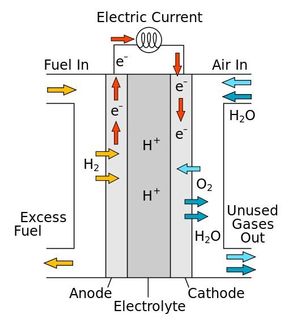Curious Mind Researcher Award Granted
Advertisement
Merck and the German business journal manager magazin presented the Curious Mind Researcher Award in Berlin. Ulrike Kramm (40), a materials scientist, received the prize worth € 7,500 in the category “Mobility and Energy”. Computer scientist Xiaoying Zhuang (36) was also awarded € 7,500 for her work in the category "Materials and Active Ingredients”. The awards were granted within the context of the “Hall of Fame of German Research”, into which Karsten Danzmann (64), Director at the Albert Einstein Institute (AEI) of the Max Planck Institute for Gravitational Physics in Hannover, Germany, was inducted.
“This evening we are honoring cutting-edge research from Germany that will enable us to deploy our scarce natural resources far more efficiently in the future. We need new technologies in order to rise to ecological challenges while enabling more and more people to live in prosperity,” said Stefan Oschmann, Chairman of the Executive Board and CEO of Merck, at the ceremony in Berlin.
Ulrike Kramm –prizewinner in the category “Mobility and Energy” – was awarded a bridge professorship in Chemistry and Materials Sciences at the Technical University of Darmstadt in 2015. She is researching and developing non-precious metal catalysts for low-temperature fuel cells, as used for example to power motor vehicles. In comparison with platinum catalytic converters, which dominate the sector, she is developing far more economically efficient catalysts made from complex molecules containing iron, nitrogen and carbon. In addition, in terms of procurement and processing, these are eco-friendlier than previous catalysts. Should her products reach series production, the use of fuel cells in motor vehicles would be much more profitable than it is today. In 2018, Kramm won the prize of the Adolf Messer Foundation for her research work.
Computer scientist Xiaoying Zhuang – winner in the “Materials and Active ingredients” category, is developing digital simulation models for nano energy harvesters at the Leibniz University of Hannover. These minuscule devices, which are to be used primarily in medical technology, derive energy from their environment (kinetic energy of the heart muscle) in order to monitor blood pressure and body temperature. Zhuang’s interdisciplinary work is at the intersection of mechanical engineering and materials science. In addition to further awards, she is the recipient of the renowned Heinz Maier Leibnitz Award of the DFG (Deutsche Forschungsgemeinschaft).
Karsten Danzmann played a leading role in establishing scientific proof of the existence of gravitational waves, for which he was awarded the 2017 Nobel Prize in Physics. Since the 1990s, he has been developing laser interferometry technology, with which the waves predicted by Albert Einstein have been detected. Danzmann and the AEI operate a small laser interferometer near Hannover and participate in all major experiments by the global gravitational research community. In addition, they develop and support major space missions to measure gravitational waves. Danzmann has been recognized with the State Prize of Lower Saxony, the Koerber Award for European Science, the Otto Hahn Prize, and the Max Planck Research Award, among others.
The work of the three scientists was recognized at a ceremony in Berlin attended by 100 guests from the worlds of business, science and politics. Franz Pischinger, Jens Frahm and August-Wilhelm Scheer, three members of the Hall of Fame of German Research, also attended the ceremony. In 2009, manager magazin introduced the Hall of Fame of German Research to distinguish outstanding scientists for their superb contributions to the further development of research in Germany. The members include Harald zur Hausen, winner of the 2007 Nobel Prize in Medicine, Stefan Hell, winner of the 2014 Nobel Prize in Chemistry, and Karlheinz Brandenburg, developer of the mp3 data compression method, as well as former Merck liquid crystal researcher, Ludwig Pohl.
Granted for the first time in 2018, the Curious Mind Researcher Award recognizes the work of young German researchers. The prize recognizes curious minds up to the age of 40, whose work is characterized by originality and excellence, and whose innovative strength is already providing impetus for the further development and future viability of Germany as a business location.































































